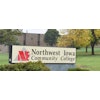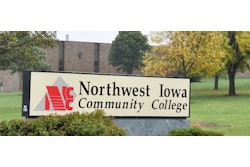A college degree pays, and not just in knowledge and experience, but in dividends too. According to a recent report by National Center for Education Statistics, full-time workers ages 25-34 with bachelor’s earned 60 percent more, on average, than their counterparts with just high school diplomas in 2004. Graduates who majored in career-oriented fields faired even better.
In a longitudinal study that tracked 1992-1993 bachelor’s degree recipients 10 years after college, NCES found that career-oriented majors such as business, computer science, education or engineering produced higher salaries and more job stability than academic majors such as social and behavioral sciences, arts and humanities. During 10-year period after graduation, bachelor’s recipients with academic majors found themselves outside the labor force at higher rates (or with greater frequency) than career-oriented majors.
According to the report, “Ten Years After College: Comparing the Employment Experience of 1992-93 Bachelor’s Degree Recipients With Academic and Career-Oriented Majors,” the average salary of a bachelor’s degree-holding college graduate roughly doubled between 1994 and 2003, growing from $30,000 to $60,000 after adjusting for inflation. Men earned, on average, $14,000 more than women.
During each of the three years in which participants interviewed — 1994, 1997 and 2003 — graduates were categorized as “only employed,” “only enrolled,” or “both or neither employed nor enrolled.” Overall, the percentage of graduates who were “only employed” hovered at 76 percent in 1994 and 1997, increasing to 80 percent in 2003.
During all three interview periods, a larger percentage of career-oriented majors were employed compared to academic majors.
By 2003, the average bachelor’s degree recipient appeared to have settled into the work force and had been at his or her job for five years. The work experiences of graduates with academic majors differed from those with career-oriented majors who became established in the work force earlier. Graduates with career-oriented majors had been in their jobs a year longer, on average, than those with academic majors in 2003.
Proportionately, 71 percent of career-oriented majors were working full time at one job in 2003 compared with 67 percent of academic majors.
The report uncovered gender differences. During each of the three interview periods, men were employed full time at a job at higher rates than women. The percentage of men employed full time at one job increased from 73 percent in 1994 to 80 percent in 1997 and then stabilized at 81 percent in 2003.
The percentage of women employed full time at one job also increased between 1994 and 1997 from 69 to 72 percent. In 2003, it declined to 60 percent, although the decline was counterbalanced to some extent by an increase in part-time employment at another job which increased from 9 percent in 1997 to 12 percent 2003.
By 2003, 46 percent of the graduates had at some point been unemployed since graduation. The average period of unemployment was nine months, however unemployment became less of an issue over time.
In the first year after finishing college, 29 percent of graduates had at least one spell of unemployment.
Click here to post and read comments
© Copyright 2005 by DiverseEducation.com















